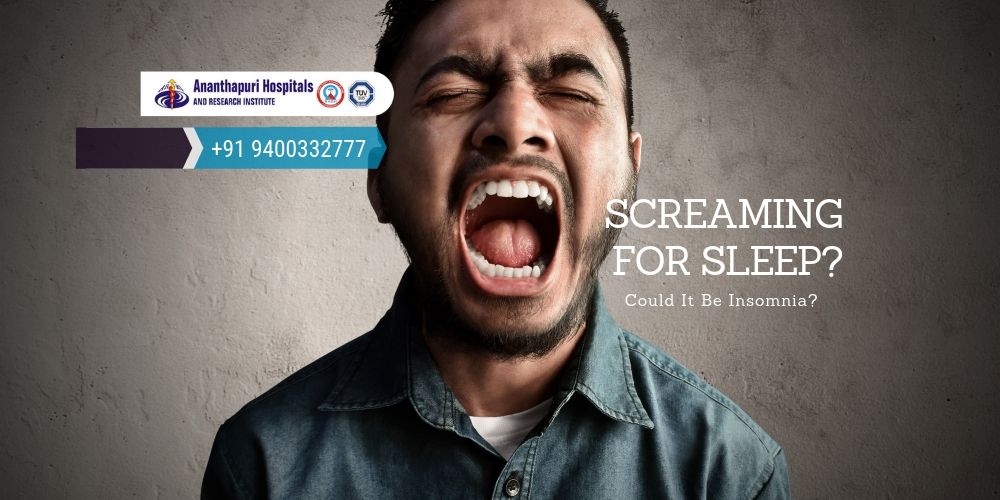- 19/July/2019

Lack of Sleep: Insomnia Symptoms & Treatment - Ananthapuri Hospital
Do you find it hard to fall asleep at night? Or do you feel tired even after having a good night’s sleep? Do you wake up too early and not get back to sleep because you JUST CAN’T?
Do not ignore it as these are signs of INSOMNIA!
KEEP READING!
Insomnia is a sleep disorder that makes it difficult for you to fall asleep or stay asleep. If you have insomnia, your mood and energy levels are very low throughout the day. This affects your work, health and overall quality of life. Stress, traumatic memories or sleep disruptive habits are usually the causes of insomnia. It can also be a result of some other health condition or medication. Insomnia can be resolved by treating the underlying cause. In the worst cases, insomnia lasts for years.
SYMPTOMS OF INSOMNIA
Take a look at the symptoms of insomnia. If you have insomnia:
- You find it difficult to fall asleep at night
- You often wake up during the night
- You wake up too early without any reason
- You do not feel well-rested after waking up
- You feel sleepy and tired during the day
- You feel irritated, depressed, stressed and anxious
- You find it difficult to remember and focus
- You find yourself being careless, even while driving
- You always worry about sleep
ACUTE VS CHRONIC INSOMNIA
If you experience insomnia for a short term - days or weeks - you have acute insomnia. It is usually a result of stress, certain medications, jet-lag or night shifts at work. But if you experience insomnia for at least three nights a week for three months or longer, then you have chronic insomnia. Chronic insomnia is usually a result of depression, anxiety, pain, discomfort at night or some other health condition.
PREVENTION OF INSOMNIA
Here is what you can do to prevent insomnia:
- Set a time to sleep and wake up and follow this even on weekends
- Exercise regularly and stay active
- Avoid exercising for three to four hours before bedtime
- Check your medicines with a doctor to understand if it contributes to insomnia
- Avoid or limit taking naps during the day to sleep better at night
- Avoid too much screen time as the light makes it harder for you to sleep
- Avoid or limit having caffeine and alcohol
- Avoid eating too much before bedtime
- Use your bedroom only for sleeping
- Read, listen to soft music or take a warm bath before you sleep
TREATMENT FOR INSOMNIA
If insomnia affects your ability to carry your day to day functionalities effectively, then a doctor may prescribe sleeping pills for a limited time. It is important to note that sleeping pills are to be imbibed only with the prescription of a doctor.
If you are diagnosed with chronic insomnia, the underlying conditions will be identified and treated. If it continues even after the first line of treatment, the doctor may recommend behavioural therapy.
If you think you have insomnia, get medical help. Your healthcare professional will conduct a physical exam, a medical history, and a sleep history. The Department of Psychiatry and behavioural sciences at Ananthapuri Hospitals and Research Institute provide expert care to adults, teenagers and children who have mental and emotional disorders including psychological and pharmacological management. Our specialists offer comprehensive evaluations to assess psychological and physical concerns.
To book an appointment, call us at +91 9400332777 or visit our hospital at Chacka, NH Bypass, Thiruvananthapuram.
- tags
- insomnia
- psychiatry

